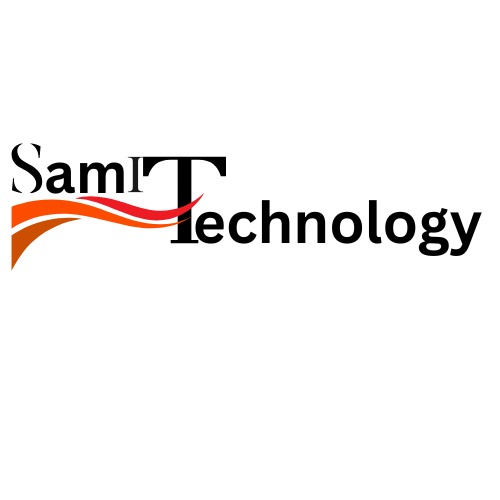DATA SCIENCE
The Data Science Course equips learners with the skills to analyze, interpret, and extract actionable insights from complex datasets. The training covers essential topics such as Python programming, R programming, Machine Learning, Deep Learning, Statistics, Data Visualization, and Big Data Analytics. Participants will gain hands-on experience working with real-world datasets, performing data preprocessing, exploratory data analysis, model building, and predictive analytics. The course also introduces AI and Generative AI tools, helping learners understand how to implement intelligent solutions in business applications. By the end of the course, students will be able to make data-driven decisions, build machine learning models, and leverage analytics to solve real-world problems across industries.
Data Science Course Objectives
The Data Science Course is designed to equip learners with the skills to analyze, interpret, and extract actionable insights from complex datasets. Participants will gain proficiency in Python and R programming, data preprocessing, exploratory data analysis, and data visualization using tools like Power BI, Matplotlib, and Seaborn. The course covers Machine Learning and Deep Learning algorithms, enabling learners to build predictive and prescriptive models. Hands-on experience with Big Data tools, cloud platforms, and AI and Generative AI applications ensures practical exposure to real-world business problems. By the end of the course, learners will be able to implement data-driven solutions, optimize business processes, and make informed decisions across industries.
✅ Key Points
Master Python and R programming for data analysis
Perform data cleaning, preprocessing, and exploratory analysis
Implement Machine Learning and Deep Learning models
Create interactive dashboards and visualizations with Power BI and Python libraries
Work with Big Data tools and cloud-based platforms
Apply AI and Generative AI for real-world business solutions
Build predictive and prescriptive models for decision-making
Gain hands-on experience through projects and case studies

Data Science Course Curriculum
Fundamentals of Data Science and its importance in industry
Data Science workflow and lifecycle
Understanding structured and unstructured data
Tools used in Data Science (Python, R, SQL, BI Tools)
Real-world use cases across industries
Roles and responsibilities of a Data Scientist
Python basics: data types, operators, loops, and functions
Working with NumPy for numerical computing
Data manipulation using Pandas
Data visualization with Matplotlib and Seaborn
Handling missing values and data cleaning techniques
Writing reusable and modular Python code
Descriptive statistics: mean, median, variance, standard deviation
Probability distributions (Normal, Binomial, Poisson, etc.)
Inferential statistics and hypothesis testing
Correlation, covariance, and regression analysis
Sampling techniques and data estimation
Statistical significance and confidence intervals
Introduction to supervised and unsupervised learning
Regression algorithms: Linear, Logistic, Ridge, Lasso
Classification models: Decision Trees, Random Forest, SVM, Naïve Bayes
Clustering algorithms: K-means, Hierarchical, DBSCAN
Model evaluation metrics: Accuracy, Precision, Recall, F1-score, ROC-AUC
Feature engineering, scaling, and dimensionality reduction
Basics of neural networks and perceptrons
Activation functions and optimization algorithms
Convolutional Neural Networks (CNNs) for image processing
Recurrent Neural Networks (RNNs) and LSTMs for sequential data
Regularization techniques: Dropout, Batch Normalization
Transfer learning and working with pre-trained models
Overview of AI and its applications
AI vs ML vs DL – differences and relationships
Natural Language Processing (NLP) basics
Computer Vision concepts and applications
AI tools and frameworks (TensorFlow, PyTorch, OpenAI APIs)
Ethical AI, challenges, and future trends
Importance of data visualization in decision-making
Data visualization using Matplotlib and Seaborn
Introduction to Tableau and Power BI
Building interactive dashboards and reports
Storytelling with data for business insights
Real-time data visualization and analytics
Introduction to Big Data and its challenges
Hadoop ecosystem and HDFS basics
Apache Spark for large-scale data processing
Data pipelines and ETL integration tools
Cloud platforms for Data Science (AWS, Azure, GCP)
Deploying ML/DL models on cloud environments
Hands-on project covering end-to-end data science lifecycle
Solving real-world business problems with data
Building and deploying ML/DL models
Applying AI techniques in projects (NLP/Computer Vision)
Presentation of project outcomes and documentation
Industry case studies and best practices
Benefits of Data Science Course
Data Science has become one of the most valuable skills in today’s digital era, driving innovation and smarter decision-making across industries. Learning Data Science empowers professionals to analyze massive data sets, uncover patterns, and generate actionable insights that help businesses grow. With the integration of Artificial Intelligence, Machine Learning, and Deep Learning, Data Science enables predictive analytics, process automation, and advanced problem-solving. It not only opens the door to high-paying career opportunities but also equips learners with the ability to contribute to real-world solutions in healthcare, finance, e-commerce, IT, and more.
High demand for skilled data professionals across the globe
Attractive salary packages and strong career growth
Multiple career paths: Data Scientist, Analyst, ML Engineer, AI Specialist
Wide applications in various industries (healthcare, finance, retail, IT)
Data-driven decision-making for better business performance
Opportunity to work with advanced AI, ML, and DL technologies
What You Will Learn in Data Science Course
The Data Science course is designed to equip learners with both foundational and advanced skills required to analyze, interpret, and solve complex data problems. You will gain expertise in Python programming, statistics, and data visualization while mastering Machine Learning, Deep Learning, and Artificial Intelligence concepts. The course also focuses on practical, hands-on training with real-time projects, preparing you for industry challenges. By the end of the program, you will be confident in building predictive models, handling big data, and applying AI-driven solutions to real-world business problems.
Key Points – You Will Learn:
Python programming for data science applications
Data cleaning, preprocessing, and visualization techniques
Core concepts of statistics and probability
Machine Learning models for classification, regression, and clustering
Deep Learning with neural networks, CNNs, and RNNs
Artificial Intelligence applications including NLP and computer vision
Big Data tools and cloud platforms for scalable solutions
End-to-end project development and model deployment

Who is Eligible for the Data Science Course
The Data Science course is designed to be flexible and suitable for learners from both technical and non-technical backgrounds. Whether you are a fresher looking to start your career, a working professional aiming for career growth, or someone planning to switch to the fast-growing field of Artificial Intelligence and Machine Learning, this program is structured to meet diverse learning needs. Students from Computer Science, IT, Mathematics, Statistics, and Engineering streams will find the course highly aligned with their academic knowledge, but it is equally beneficial for professionals from management, finance, healthcare, or business domains who want to leverage data in decision-making. Since Data Science is an interdisciplinary field, the primary requirements are logical thinking, analytical skills, and a willingness to learn programming. Even individuals without prior coding experience can excel, as the course starts with Python basics and gradually advances to Machine Learning, Deep Learning, and AI. With organizations worldwide adopting data-driven strategies, learning Data Science offers global career opportunities, making it an ideal choice for anyone passionate about working with data and technology.
Key Points – Eligibility:
Fresh Graduates – Students from Computer Science, IT, Statistics, and Engineering backgrounds who want to begin a career in Data Science.
Working Professionals – Software developers, IT engineers, analysts, and data administrators aiming to upgrade skills or shift to Data Science roles.
Non-Technical Professionals – Individuals from finance, healthcare, business, or management with strong analytical and problem-solving skills.
Career Switchers – Professionals from testing, BPO, or non-technical IT roles who want to enter AI, ML, and Data Science.
MBA & Management Graduates – Business and management professionals seeking data-driven decision-making and analytics expertise.
Aspiring AI/ML Specialists – Anyone passionate about Artificial Intelligence, Machine Learning, Deep Learning, and data technologies.
Data Science Course – Frequently Asked Questions (FAQ)
Data Science is the study of extracting insights from data using statistics, programming, and AI techniques. It is important because it helps businesses make data-driven decisions, improve efficiency, and predict future trends
Fresh graduates, working professionals, career switchers, engineers, analysts, and even management students with analytical skills can join. Basic programming knowledge is helpful but not mandatory.
No. The course starts with Python programming basics, making it suitable for beginners as well as experienced professionals.
You will learn Python, statistics, data visualization, Machine Learning, Deep Learning, Artificial Intelligence, Big Data tools, and cloud integration.
Yes. You will work on real-world datasets and capstone projects to apply Data Science concepts practically.
Yes. We provide guidance and support for globally recognized Data Science and AI/ML certifications.
You can work as a Data Scientist, Data Analyst, Machine Learning Engineer, AI Specialist, or Business Intelligence Professional.
The course typically takes 2–3 months, depending on the training format and learning pace.
Yes. We offer job placement guidance, resume preparation, and interview training to help you secure roles in top companies.
Data Science offers high demand, global opportunities, attractive salaries, and the chance to work with cutting-edge AI and ML technologies.

